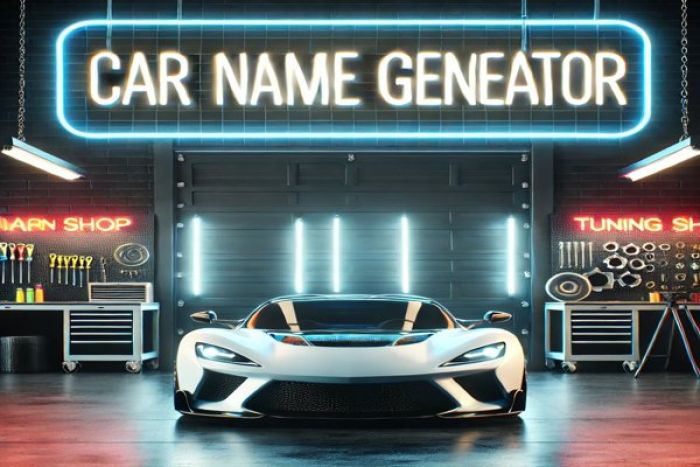The amount of diesel exhaust fluid (DEF) a truck uses depends on the type of engine and size, as well as the length of time it is in operation. DEF is crucial for the efficient operation of modern diesel engines, and without it, the engine will not perform at its optimum level. In this article, we will look at how much DEF a truck uses and what happens if you try to drive without it.

What is Diesel DEF, and what does it do for a truck engine?
DEF stands for Diesel Exhaust Fluid, and it is an essential component in diesel engines. The fluid helps to reduce emissions of nitrogen oxide (NOx) from the engine by converting them into water vapor and harmless nitrogen gas.
In addition, DEF also assists with combustion efficiency, which can improve fuel economy as well as overall engine performance. Without DEF, modern diesel engines would not meet clean air requirements, and truck owners would be faced with hefty fines if their vehicles did not comply. Therefore, it is important to maintain the DEF level in a truck engine to ensure its proper functioning.
It is also important to note that DEF needs to be stored and used correctly in order for it to remain effective. DEF has a shelf life of approximately one year, so it is important to check the expiration date before use.
In addition, DEF needs to be kept in its original container and stored properly in order to prevent contamination. Contaminated DEF can cause serious damage to an engine's fuel system and reduce performance, so it is important to use only uncontaminated DEF in a truck engine.
If the level of DEF is low, it can be replenished with a special filler nozzle specifically designed for this purpose. Truck owners should also check the DEF tank regularly and top it up when necessary to avoid running out of fuel or facing costly fines.
Lastly, regular maintenance checks and filter changes should be carried out to ensure that DEF is used optimally and the engine remains in good working order. All of these steps will help to maintain an efficient and reliable truck engine that meets clean air requirements.
How much DEF does a truck use, and how often do you need to refill the tank?
The amount of DEF a truck uses depends on the model and size of the vehicle. Generally speaking, light-duty vehicles will use about 2 to 3 gallons of DEF for every 1,000 miles driven.
The frequency with which you need to refill your DEF tank depends on how much you drive and the size of the tank. Most vehicles have a 3-5 gallon DEF tank, so if you are driving around 5,000 miles per month (for example), you will likely need to fill up your DEF 5 times. In general, It is recommended to refill your truck's DEF tank every third or fourth fill-up of diesel fuel.
If you're filling up your DEF tank regularly, it's important to use the highest quality fluids available. Using low-quality DEF can damage your vehicle and have a negative effect on its performance. With high-quality DEF, however, you can ensure that your truck remains in top condition.
Can you drive without DEF, and will the truck still run?
The answer is no. You cannot drive without DEF, and the truck will not run. DEF allows the vehicle's emissions system to function properly, which is essential for it to be able to operate. Without DEF, the exhaust gases produced by the engine would contain too much nitrogen oxide and other harmful pollutants.
This could lead to serious environmental damage and cause the vehicle to fail emissions tests. Additionally, without DEF, your engine would not have the proper chemical balance and could suffer damage in the long run. Therefore, it is important to always keep a full tank of DEF on hand when operating a diesel engine. Failing to do so can result in costly repairs and fines.
What are the consequences of running out of DEF while driving a truck?
If a truck runs out of DEF while driving, it can cause the vehicle to shut down, resulting in dangerous road conditions and delays. In addition, the engine will not run properly or efficiently until proper levels of DEF are restored. The truck may experience reduced power and acceleration, as well as a decrease in fuel economy.
The truck's emissions control system may also be affected, resulting in increased air pollution. Ultimately, running out of DEF can lead to costly repairs or even the replacement of vehicle parts if left unchecked. You may need to replace the DEF header tank, which can cost more than a thousand dollars. Therefore, it is important for truck drivers to regularly check their DEF levels and refill as necessary.
How long can you drive when your DEF indicator is on?
When your DEF indicator is on, the vehicle will typically display a warning light and begin to limit your engine speed. This system will prevent any further use of the vehicle until you refill the DEF tank. Depending on how low the level of DEF fluid is in your tank, you may be able to drive for about 50-100 miles.
It is important to refill the DEF tank as soon as possible to avoid further damage to your vehicle. Failing to do so may result in additional repair costs or even engine failure.
How can you make sure you never run out of DEF while on the road, and where can you find it if needed urgently?
The best way to make sure you never run out of DEF while on the road is to plan ahead and purchase a large supply before you embark on your journey. It's important to buy from a reputable seller who sells a quality product, as contaminated or low-quality DEF can cause significant damage to your vehicle. You should also check your DEF tank regularly to ensure it is stocked and that there are no leaks.
If you find yourself in an emergency situation where you don't have enough DEF, many truck stops, auto parts stores, and fuel stations carry DEF. You should also check online, as many suppliers offer delivery services or other convenient options. Be sure to only purchase DEF that is labeled "certified" or "approved" to ensure the highest quality.
What are the potential DEF truck costs and benefits?
The potential costs associated with a DEF truck include the cost of purchasing, installing, and maintaining the necessary equipment, the cost of training personnel to operate the vehicle correctly, and any additional costs for diesel exhaust fluid. The benefits associated with a DEF truck include improved fuel economy due to cleaner burning emissions and greater compliance with environmental regulations.
Additionally, a DEF truck can help reduce greenhouse gas emissions and improve air quality in the local area. Finally, drivers may experience improved performance when their vehicle is powered by diesel exhaust fluid due to its ability to reduce noxious emissions. Ultimately, it is important for owners to weigh all of these costs and benefits before making a decision to purchase a DEF truck.
Bottom Line
DEF is an important part of operating a diesel engine, as it allows the truck's emissions control system to function properly and keep the vehicle running smoothly. It is important to check your DEF tank regularly, refill it when needed, and purchase quality fluids from reputable suppliers. By taking these steps, you can ensure that you never run out of DEF while on the road and that your truck is always running at its best.
About the authors
The CarAraC research team is composed of seasoned auto mechanics and automotive industry professionals, including individuals with advanced degrees and certifications in their field. Our team members boast prestigious credentials, reflecting their extensive knowledge and skills. These qualifications include: IMI: Institute of the Motor Industry, ASE-Certified Master Automobile Technicians; Coventry University, Graduate of MA in Automotive Journalism; Politecnico di Torino, Italy, MS Automotive Engineering; Ss. Cyril and Methodius University in Skopje, Mechanical University in Skopje; TOC Automotive College; DHA Suffa University, Department of Mechanical Engineering






Add comment